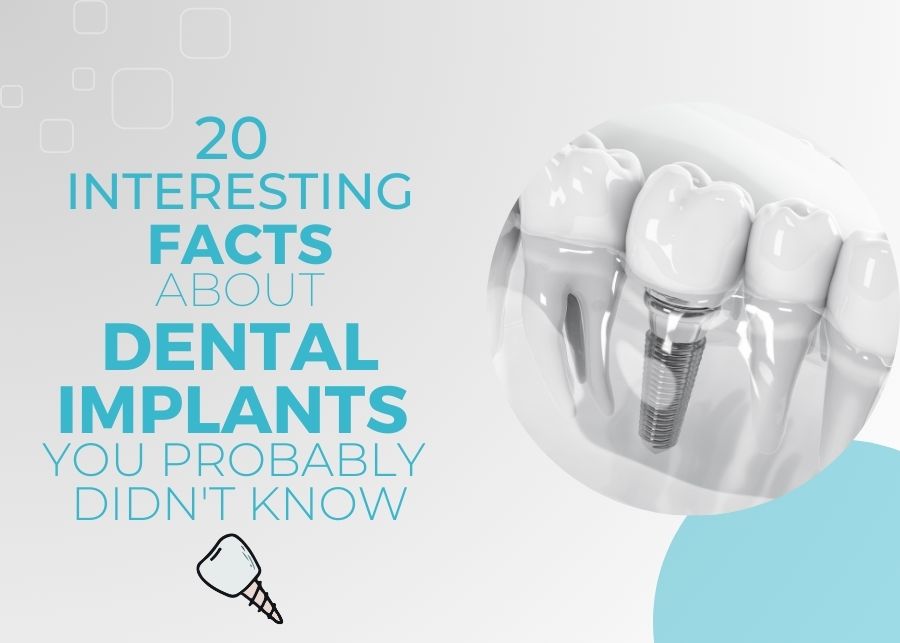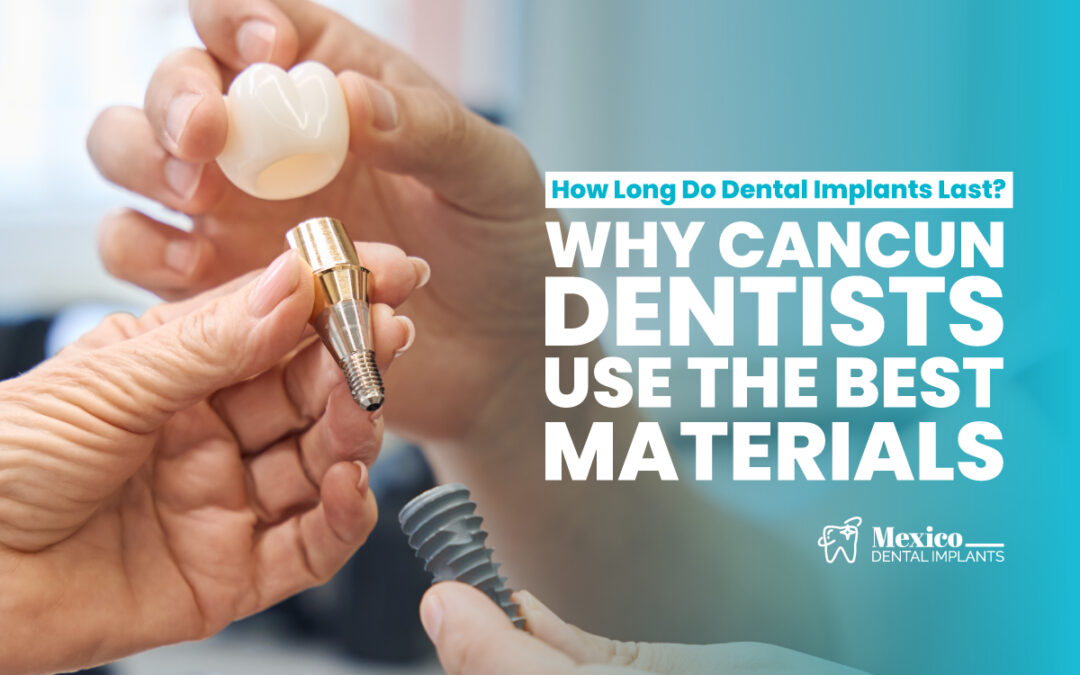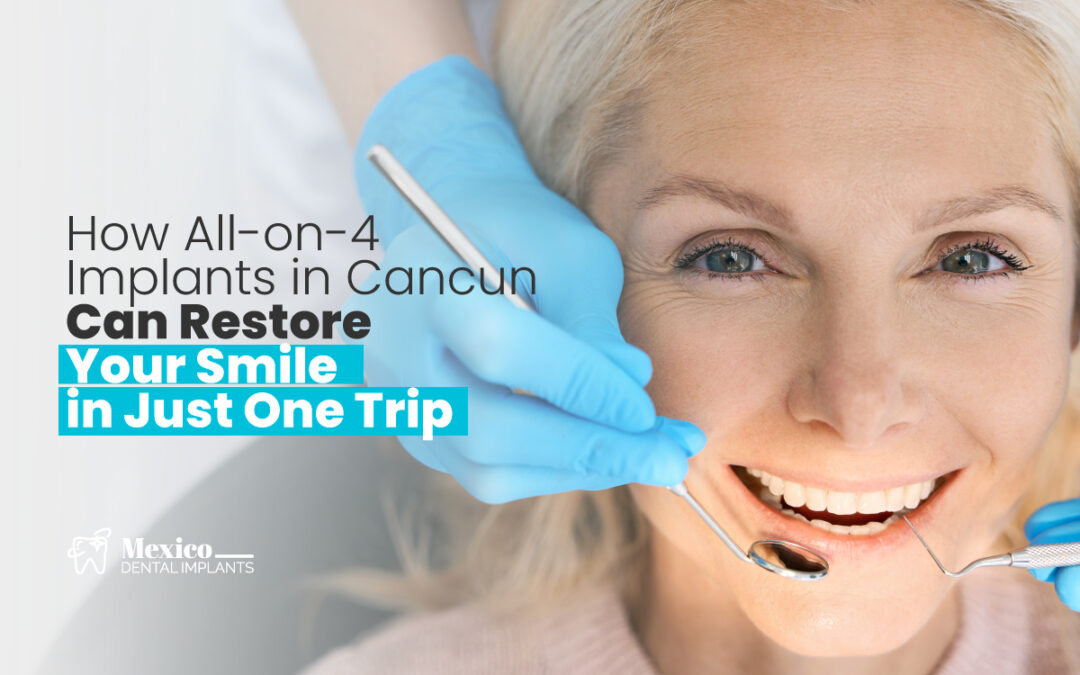June 6, 2023
20 Facts About Dental Implants You Probably Didn’t Know
Have you been thinking about getting dental implants? Then you have probably already done a lot of research on the subject. You might have already read about its many benefits -if not, take a look at the Main Reasons to Choose All-On-4 Dental Implants– its costs, materials, and other important information. But, what about the lesser-known details?
There are a number of interesting facts about dental implants you might not be aware of.
Let’s examine some of them below:
1. What Do Implants Taste Like?
Basically, dental implants do not taste like anything on their own. As you may know, dental implants resemble natural teeth in many aspects, and this is one. Just like natural teeth, they don’t leave any bad taste in your mouth. They are made of titanium, which is non-corrosive so you will not need to worry about any metallic taste.
2. Do Implants Change the Shape of Your Face?
Single-tooth implants will usually not affect the shape of your face. However, patients who receive a full mouth implant often see a big difference in their face shape. This is due to their face structure now being supported by the implants and their bite. Implants can improve the contours of a patient’s cheeks and jawline by filling out collapsed parts of the face.
3. Can You Feel Dental Implants in Your Cheeks?
Dental implants do not have nerve receptors for the patient to experience sensations through them. You will not be able to feel them through the skin of your cheeks either as they are anchored tightly into the jawbone. You will feel them as natural teeth.
4. Are Dental Implants Sensitive to Hot or Cold Food and Drink?
All-on-4 dental implants can help the patient have a natural smile and even look younger.
Missing bone and tooth structure causes wrinkles. All-on-4 help preserves the jawbone to prevent further deterioration of the facial structure caused by missing teeth.
After an All-on-4 implant, the patient’s smile looks natural. This is because the design of the overdenture is horseshoe-shaped: the roof of the mouth is not covered, giving it a more natural feel.
5. Is It Hard to Floss with Full Mouth Dental Implants?
The majority of complete dental implants consist of prosthetics that substitute an entire set of teeth, eliminating the need for interdental flossing. A convenient method to effectively clean between the implants and your natural gums is by utilizing a water flosser.
6. Do You Ever Need a Root Canal If You Have Full Mouth Dental Implants?
A bone graft is usually required when the jawbone of the patient is too weak to support a dental implant. With All-on-4 implants, a bone graft is not required since the four implants are not limited to a particular location. The implants are placed at different points along the jaw where the bone is denser.
7. Can You Go Through a Metal Detector with Dental Implants?
Titanium is not magnetic, this means the implants which are made of this material will not set off a metal detector.
8. Do Dental Implants Have Fake Gums on Them?
In certain cases, dental implants may be accompanied by artificial gums. This practice is more prevalent in full arch implants compared to single implants. Incorporating artificial gums with implants helps achieve a more realistic appearance.
9. Do Implants Change a Person’s Sense of Smell or Taste?
This can vary depending on how severe your oral health problems were before dental implants. Getting implants may significantly improve your sense of smell and taste. How? Periodontal disease clears up by removing decaying teeth or large dentures, thereby eliminating any obstacles that might hinder direct contact between food and your taste buds.
10. Can Dental Implants Affect Vision?
No, if dental implants are correctly positioned, they will not cause any disruption or interference with the nearby nerves located around the cheekbones, despite their close proximity to them.
11. Can Dental Implants Cause Tinnitus?
Dental implants do not directly lead to tinnitus. However, there is a possibility of experiencing temporary tinnitus following the surgical placement of implants. The intense vibrations produced by dental equipment during the procedure can potentially irritate the delicate bones and tissues within the ears. This occurrence is not exclusive to dental implants and can happen with any dental treatment involving instruments that may disturb the sensitive structures of the ear.
12. Do Implants Increase a Person’s Chance of Developing Sinusitis or Sinus Infections?
When the oral surgeon places the upper implants, they do not breach the sinuses. In short, implants will not cause any new issues with a patient’s sinuses.
13. Can Dental Implants Change the Sound of My Singing Voice?
There is a chance that this could occur. The use of any dental prosthesis has the potential to alter the sound of your speech or singing voice. However, in the case of dental implants, they are more likely to improve the clarity and ease of your singing voice rather than negatively impacting it.
14. Can I Get Cavities on My Dental Implants?
Implants mimic the experience of having natural teeth, but with a significant distinction: they are impervious to cavities. Nevertheless, it remains crucial to maintain regular dental check-ups and perform routine oral hygiene practices, such as brushing and flossing, to preserve gum health and ensure overall oral well-being. Take a look at these Important Aftercare Tips For All-On-4 Implants.
15. Can I Get Implants If I Have Osteoporosis?
This will depend on the patient’s prescription history. Some prescription medications for osteoporosis might make the implant placement procedure riskier. Patients with osteoporosis should contact their dentist to see if they are good candidates for dental implants.
16. Can Professional Athletes in Contact Sports Get Dental Implants?
In general, dental implants are a safe option for contact sports as long as they are fully healed and integrated. It is important to take necessary precautions and safeguard the implants during physical activities. Just like natural teeth, dental implants can be affected by repeated impacts on the mouth, which may lead to implant failure.
17. Can I Scuba Dive with Dental Implants?
Yes. Dental implants are made of titanium, which is a lightweight, solid metal and it’s resistant to pressure changes.
18. Can You Go to Outer Space If You Have Dental Implants?
Yes. Dental implants won’t stop anyone who has the chance to go to outer space.
FUN FACT: Dental implants are made of the same material as space shuttles and rockets.
Space shuttles and rockets are made from some of the best materials found on Earth. After all, nobody wants their space shuttle to spring a leak in the middle of space. As such, titanium, one of the strongest metals known to man, is routinely used.
19. Can You Feel Implants When Riding a Roller Coaster?
If you can’t feel your natural teeth when riding a roller coaster, the same rules apply.
The healing process of dental implants involves the fusion of the implant with the bone, known as osseointegration. Once fully healed, a well-integrated implant will not exhibit any more movement or looseness than a healthy natural tooth.
20. Why Mexico Dental Implants?
Dental implants are the most cost-effective way to replace missing or damaged teeth. When you get your dental implant treatment in Mexico, you can receive an affordable price tag and come out with the perfect smile. We are the top-rated dental implant specialists in Guadalajara, Mexico. If you are searching for Dental tourism, please contact us for a Free consultation.



